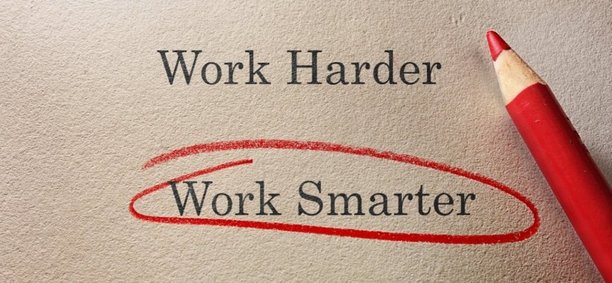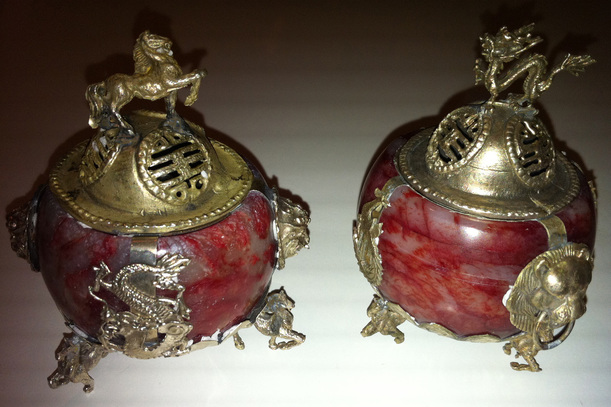 INC Magazine/Getty Images INC Magazine/Getty Images An interesting read published on INC Magazine on scientific proof of how negativity affects our brains. We often practice "venting" in the office, then try to mobilize ourselves back into action and solution-mode. Of course others can spend a greater amount of time expressing dissatisfaction or complaining. What I learned from this article is that perhaps we need to pay attention to how much time we actually spend in this negative space as there may be consequences beyond affecting our own mood or that of our co-workers Something I used to do while in the corporate world was to take a break, take a lap walking around the parking lot of the offices. Maybe you have some different strategies. Read the full article here: Have a great week! Complaining Is Terrible for You, According to Science Steeping yourself in negativity has seriously terrible consequences for your mental and physical health. by Jessica Stillman http://www.inc.com/jessica-stillman/complaining-rewires-your-brain-for-negativity-science-says.html  As a Monday pick-up, here's an interesting question posed on QUORA - How can I Motivate Myself to Work Hard? Here are two responses (links below) one published in INC Magazine by Mathew Jones and another by Nelson Wang on Quora. While there is some overlap in the articles, there are elements in both articles that resonate for me. Have a great week! "Motivation is a lot like happiness; when you look for it as something outside of yourself, it dissipates." 8 Unique Ways to Challenge Yourself to Work Smarter by Matthew Jones Stop complaining and start reframing. http://www.inc.com/quora/8-unique-ways-to-challenge-yourself-to-work-smarter.html Self-Improvement: How can I motivate myself to work hard? by Nelson Wang https://www.quora.com/Self-Improvement/How-can-I-motivate-myself-to-work-hard Before fixing what you are looking at, check what you are looking through… - Mark Nepo, The Book of Awakening  In his book, The Book of Awakening, Mark Nepo speaks about how we see the world using the example of his grandmother looking out through her only window and complaining about how gray the day was, only to realize that the window was dirty. When he discovered this, his grandmother with humor stated, “Got a dirty eye, see a dirty world…. ”Whether it is a dirty window, a pair of glasses with smudges or reflections of something else, or a mood that affects everything that happens to us, he offers a reminder that we see the world as we choose to see it. While we do not control all the events in our lives, we do have the capability to see things as they are, naked of all the baggage we pile on. It’s not only a question of perspective, but perhaps also one of simplicity devoid of assumptions and or expectations. We don’t control the all the events in our lives, but we do choose what we see and how we interpret those events. Finally, we choose what to do in the face of these events. While coaching clients who want to improve how they manage conflict in their professional or personal lives, I often ask my client to walk through an event, step by step, as it is a movie played on a screen in front of them. First observing what is seen, heard, the actual words and motions. As we dive deeper, the client is often surprised when I play back the words used by the client to describe the situation. Or, the client is surprised when I ask whether some portion of the event that was critical in their interpretation came from the scene itself or from something he or she interpreted from a past experience or an expectation. There is something to be said about learning from our past experiences or using our intuition in dealing with the events in front of us. The tricky part is to be aware of what is an assumption or comes from within ourselves and what is actually being done by another person in front of us. When we become aware of our own internal dialogue or assumptions, it is only then that we can put forth those assumptions to check with the other person if that is what they truly intended. Through more simple questions and communication to clarify, some of the conflicts and misunderstandings could perhaps be avoided. The other factor that can dirty our windows, so to speak, can be our beliefs and expectations. Whether in the office or at home, if we expect the worst from someone without giving them the benefit of the doubt, we will for sure end up with an unpleasant experience that reinforces our beliefs about that person. It can make a simple misunderstanding evolve into an overall sentiment that all is terrible with that person, therefore labeling the identity of the person as “bad.” Likewise, we may also miss critical clues if we expect that anything that a given person does is perfect. Later, we can experience an unpleasant surprise because we “did not see it coming.” Another example of this is a senior leader that is preparing to “fight” for his department at a management meeting. Whether for new product development budget or for issues that his department has encountered, by seeing the meeting as a battlefield, the executive found himself in a defensive position, using terms like “my department” and digging his heels, wondering why no one was listening to his ideas and concerns. In doing so, he probably positioned himself as sitting across the table against his peers, rather than sitting together trying to find the best solutions for the business as a whole. After our discussion, he liked the analogy of being in a boat, each leader having an oar, and each oarsman playing a critical role to move the boat forward. It gave him food for thought as he prepared for his next management meeting. Mark Nepo speaks about the window washing in our minds and in our hearts. He asks us to contemplate what are the ideas and conclusions we have in our minds and in our hearts, and how we can wash these windows through which we see the world. It was a great reminder for me, an invitation for me to see things and other people for what and who they are, not as I believe them to be. I hope that it can also offer you an opportunity for reflection. Thanks !  from HBR.org Calming Your Brain During Conflict Four steps to get out of “fight or flight.” by Diane Musho Hamilton "Conflict wreaks havoc on our brains. We are groomed by evolution to protect ourselves whenever we sense a threat. In our modern context, we don’t fight like a badger with a coyote, or run away like a rabbit from a fox. But our basic impulse to protect ourselves is automatic and unconscious....Mindfulness is the perfect awareness technique to employ when a conflict arises — whether it’s at work or home. It allows us to override the conditioned nervous system with conscious awareness. Instead of attacking or recoiling, and later justifying our reactions, we can learn to stay present, participate in regulating our own nervous system, and eventually, develop new, more free and helpful ways of interacting." read the full article here https://hbr.org/2015/12/calming-your-brain-during-conflict  from Entrepreneur.com Stress Literally Shrinks Your Brain. Here Are 7 Ways To Reverse This Effect. by Travis Bradberry "We all know that living under stressful conditions has serious emotional, even physical, consequences. So why do we have so much trouble taking action to reduce our stress levels and improve our lives? Researchers at Yale University finally have the answer. They found that stress reduces the volume of grey matter in the areas of the brain responsible for self-control. So experiencing stress actually makes it more difficult to deal with future stress because it diminishes your ability to take control of the situation, manage your stress and keep things from getting out of control..." read the full article here http://www.entrepreneur.com/article/270629 from INC.com
8 Habits of People With Amazing Determination and Willpower How successful people resist temptation, stay focused and determined, and remain resolute in pursuit of their goals. by Jeff Haden "Consistently doing what you need to do to succeed, with total focus and resolve, is incredibly difficult. And that's why the ability to work hard and respond positively to failure and adversity is so crucial. Resolve, willpower, and determination help successful people work hard and stick to their long-term goals..." read the article here http://www.inc.com/jeff-haden/8-habits-of-people-with-exceptional-determination-and-willpower.html  I wanted to share a very interesting read this morning. It is from the businessinsider.com and was shared on LinkedIn… nice to see what has shaped people, and how long they remember these little yet significant nuggets over time. http://www.businessinsider.com/executives-share-the-best-advice-they-ever-got-2012-3?IR=T Enjoy! Holding on to anger is like grasping a hot coal with the intent of throwing it at someone else… you are the one who gets burned… Buddha  When was the last time that you felt yourself getting angry with someone? A colleague? Your partner? Your son or daughter? Yourself? How did it feel at the time? As you think about the events that played out, would you like to find different ways to manage through the situation for a more satisfying and productive outcome? In this article, I would like to explore what are your choices in reacting to anger once it is triggered. By understanding what is going on inside us and around us, we have more choices on how we can manage or express our anger. Note: This article is not intended to provide medical advice, diagnosis or treatment (see note below) What is Anger? Anger is a normal and usually healthy, human emotion. It comes from a perceived threat to ourselves, someone we care about, our self-image, or our identity. It is useful as it protects us and it...  Learning to Apologize When was the last time you had a situation arise at home or at the office that ended in a less than desirable way? How did you handle it? Did you think about all the things that the other person did that was wrong? Did you contemplate what was your part in this interaction? Did you decide to forget about the situation and just move on? It’s interesting that in most cultures, we say I am sorry or apologize for many little things, whether it is for interrupting someone mid-sentence or stepping into their path in a hallway. For example, in Japan, we say we are sorry if we are about to eat first or leave the room. But when it comes to apologizing for something important with people we care about or those we rely upon at work, we seem to choke on the words. And if we manage to give an apology, it is often immediately followed by an explanation of why we did it. “I’m sorry, but….” The end effect is that we are really good at apologizing for things that are trivial, but for the people that really matter, our attempt at making an apology doesn’t really have an impact. In the end, we risk losing a piece of the goodwill in our relationships that can have a lasting effect in the long run. What Gets in the Way? First thought, sometimes it really doesn’t matter if you feel that the other person was 90% at fault and you were 10% at fault. Anyway, it is rare in any conflict that someone is 100% at fault.... Competitiveness seems can be perceived as normal for anyone on the job. It can be perceived as a sign that someone is doing all that they can to do to do the best job. Other times it can create barriers to trust and leave your colleagues wondering if you are on the same team (or out for your own agenda). I think that this behavior can also be perceived differently when exhibited by men or by women. While the behavior can be perceived as natural when exhibited by men, women who are competitive usually get some additional (and unflattering) labels attached to them at the first sign of competitiveness. When competitiveness becomes associated with you as a negative identity label, it can be coming from a behavior that you exhibit or it can come from others who feel that they need to compete against you for some reason. Don’t be surprised if you find your colleagues competing against you. That’s life. I choose to think of it as a compliment. After all, why else would that person be competing with you? You must be good at something that you do for them to notice you and choose to be competitive with you.
Is there a problem here? Maybe not, but I would be doing a disservice not to mention something for you to think about. It might be worth taking a look whether or not this is a problem if you ...  When was the last time you had a tense situation or conflict arise at work? A comment made by someone at a meeting, and email received that really affected you. Think about that situation for a moment. Did you send an email copying 15 other people on your position? Or did you make a sarcastic comment in response? Whether in the office or at home, managing conflicts is an issue that faces most people on a daily basis. Were you less than satisfied on how you handled yourself? Or do you feel you did everything right, yet the outcome was less than optimal? Managing through conflicts isn’t really about who is right or who is wrong. It’s about finding a workable solution that moves the issue forward. If you want to improve how you manage yourself through difficult situations, gaining awareness is really the first step. The Movie Try stepping out of the situation and watching it as if it was a movie, with the actors, scenes, action, and the underlying scripts. While watching the movie, some of my clients find it easier to see things that they could not see.while being in the movie themselves. What was the thing that set you off? ... I think that there is a lot of debate on the subject of whether or not the grass is always greener on the other side. Have you caught yourself going down this path? Ever have a friend speak to you about all the reasons why the grass is greener over there? Erma Bombeck, a humorous author writes, “The grass is always greener over the septic tank!” Now that might be taking it a little bit to an extreme. Seriously, the reason why I wanted to write this article is because I wanted to explore people’s perceptions on change and whether or not there is a specific underlying behavior pattern at play. After you read the article, I would truly welcome your discussion on the subject at hand. On the Job Have you ever had a coffee with colleagues and the conversation turns into a downward spiral of comments describing everything wrong with your current employer? Do you find yourself saying, “It wasn’t like this (insert time frame here) years ago. When we started it was like (insert your description of nirvana here).” The thinking progresses. You start to wonder, “Are there better opportunities out there compared to this one?” ... |
|
Services |
Company |


